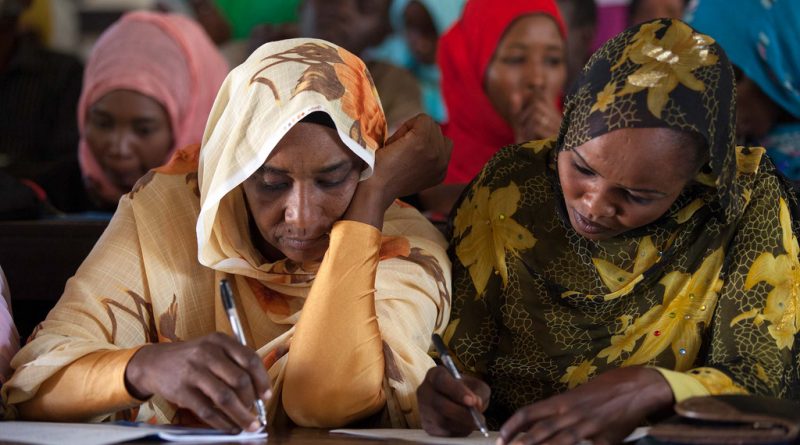When you try to promote women in commerce people always ask why, what’s the business case?
The truth is, for a long time sexual equality has been viewed as just a human rights imperative, but lately women’s contributions to the global economy have been under scrutiny.
In 2015 the McKinsey Global Institute looked at what would happen if we gave women the same opportunities as men. They used a ‘best in region’ scenario, where all countries match the rate of the fastest improver in their region. They found that $12 trillion could be added to global GDP by 2025.
Nowhere is sexual inequality more striking than in African agriculture. An analysis by the United Nations’ Food and Agriculture Organization (FAO) showed if women had the same access to land, seed, fertiliser and mechanisation, productivity in women’s fields could increase by 20 to 30 percent. That would immediately lift 180 million people out of hunger.

So there is a compelling business case for female-focused programmes. My organisation, AGRA, is an African alliance improving agriculture through smallholder farmers. Our women in agriculture strategy aims to unlock farming as a business for women. On World Women’s Day I want to look at how that differs from how we do it for men.
The end goal is the same – lift people out of poverty and give them a better life – but how we do it is very different. Because she lives in a man’s world, a woman faces different challenges going about her daily business: she may not come and go and she pleases, often having to ask a man’s permission to leave the village; she has huge time constraints, performing four to six hours of drudgery every day cooking, cleaning and looking after children; she doesn’t own the land that she farms, so she can’t get credit and she doesn’t want to invest in the land because she doesn’t own it.
These are a whole different set of challenges not faced by men.
Only 5-10 percent of those working in food production are women, mainly working in the fields, and they are almost entirely absent from the money end of the business. More female-owned land would counter this, but land ownership is a vast issue to tackle. Concentrating on agricultural businesses makes sense; if it’s off the farm you’re not fighting discrimination in the home, and if we can build businesses owned and controlled by women and get women to be the ones buying from smallholder farmers then woman are going to see the benefits.
The farmer gets the mechanisation when needed and the tractor owner makes full use of his asset. Interestingly, in a country where female land ownership is rare, 30 percent of TROTRO Tractor uses are women – a significantly higher uptake than would be expected considering the gender gap not just in land ownership, but also mobile phone access.
Politics also plays its part; almost all policy is made by men. So, it’s important to get women into farming organisations to represent the voice of women. But to do that they need to be taught how.
You can’t just drag a women off the street and stick her in an organisation. She needs coaching, to be taught how to speak up, how to be persuasive, and to have the confidence to speak out on behalf of other women. It doesn’t happen overnight, but once you can say this women represents 50,000 smallholder farmers, or this women represents all the small businesses owned by women doing agribusiness across Ethiopia, then they’ll give her a seat at the table.
So back to the McKinsey report and closing the gender gap. Using their ‘best in region’ scenario the uplift in GDP for sub-Saharan Africa is $300 billion by 2025. If you still need a reason for including women, it’s right there.

